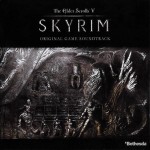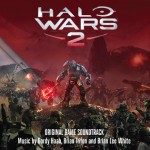Lots of people have made a big fuss about the vocal theme to Mirror’s Edge, Still Alive. Though I am personally a bigger fan of the vocal theme to Valve’s Portal (also called “Still Alive”), there’s no question that Lisa Miskovsky’s vocal performance for Mirror’s Edge was fantastic. So memorable was it, that five DJs and other remixers jumped in to do their own versions of “Still Alive,” which can be found on the EP “Still Alive – The Remixes.”
But what about the in-game score to Mirror’s Edge? Turns out it’s pretty hip as well, as long as you can get into the whole ambient/psybient/Goa scene. Swedish composer Magnus Birgersson, who goes by the moniker “Solar Fields,” composed the score for Mirror’s Edge. And, fortunately for us, said score has been available for digital download (Amazon MP3 and iTunes) since May of this year.
After the jump, you’ll find a full review of the Mirror’s Edge Original Videogame Score.
When I listen to a a JRPG soundtrack, and then I listen to a soundtrack like this, I have to acknowledge that these are two different animals. In the former case, I may be able to point out some “filler” tracks and note the high points for the OST. But for a soundtrack like this, which is almost entirely ambient, one might argue that the whole thing is “filler.” On the contrary, I think what we have here is something quite different. Yes, the music operates in such a way as to enhance the game’s aesthetic, to “blend in” without ever standing out. But you can study this music, break it down by measure and sound sample. Or you can choose not to study it, and just let it take you away. In either case, you would be “getting into” the music.
The album’s opening track, simply titled “Introduction,” builds relatively quickly. Artificial percussion and noise create a soft spine while a melodic pattern dances in higher octaves. Much attention to detail went into the “droning” sounds that come through. Some mix of voice of and string samples will pan across the stereo soundscape, in one direction or another, at various speeds. All of these sounds play on top of one another until, about 3 minutes into the song, a “strong” percussion section comes to the forefront. The piece is formulaic in the sense that it follows the golden ratio: approximately 60% of the way through the song, we reach a climax. How it is that Birgersson managed to follow this rule while style maintaining a steady build from one eight-bar segment to another is something I have yet to figure out. Consider me impressed.
The opening track is actually one of the shortest tracks on the album. Almost all of the twelve tracks in this music collection top the seven minute mark. These ambient tracks vary in terms of tonality. Some pieces feel like traditional “music” with the trappings of ambient techno thrown around them. Other pieces sound less like a melodic tune and more like bits of noise strung together at the right tempo. It’s worth noting that, for all the subtlety and complexity built into these pieces, Birgersson never strays from common time. I’m still looking for more techno/ambient/atmospheric composers that are willing to experiment with irregular time signatures. Maybe such pieces wouldn’t have worked well for Mirror’s Edge, but I suspect that, given the right tools, an ambient piece working in 7/8 or 13/8 could’ve fit into Mirror’s Edge. It may throw off the “rhythm” of the player as they run around the stylish cityscape, but perhaps during a story sequence, such a piece would fit.
I suppose that’s my only complaint with this album. Birgersson did a great job adding variety to tempo, dynamics, sound/instrument choices, tension vs. relaxation, the whole nine yards. But he was too afraid to step outside of common, 4/4 time.
As a bonus, this digital download also comes with the vocal theme “Still Alive” and its instrumental counterpart. If you didn’t pick up this song from the Remixes EP, then that’s just one more reason to consider downloading this album.
Tags: Ambient, Mirror's Edge, Music Reviews, Psybient, Reviews









































You know, Solar Fields also releases music in the netlabel scene. He posted on Kahvi recently, in fact. Should check it out. I’ve always said it’s ridiculous that these netlabel scene guys don’t get paid for their amazing music, and I guess this is one case where he did!